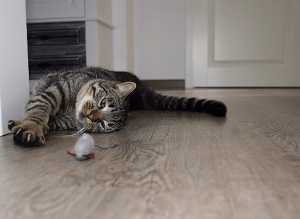If you own cats, chances are at some point you’ll have scratched your head and wondered ‘why is my cat meowing so much?’
The reasons why cats meow are numerous – some just want attention, others are born great ‘talkers' and, sometimes, meowing is the first sign of a problem.
Whatever the cause, excessive meowing shouldn’t be ignored or punished. Chances are that yelling at your cat won’t stop them – it will only cause them to distrust or even dislike you. Try to discover the root of the problem so you can find a solution.
Below are some common causes of excessive meowing:
Breed – some cats are naturally more vocal than others and will communicate with you frequently. Siamese, for instance, are known to be talkers, so avoid this breed if you prefer a quieter cat.
Greeting – many cats, especially those that live indoors, will often meow in greeting when they see you. Some will meow until you acknowledge them, either with a stroke or a cuddle, and will quieten down after a few minutes.
They want something – whether it’s food, a litter change, to play or simply your attention, meowing is one way a cat will make you aware of this. This kind of meowing will usually cease when they get what they want, but it can result in excessive meowing in the hope they keep getting what they want! Make sure you reward quiet, calm behaviours to prevent this happening.
Illness – one of the most important reasons you should never ignore a meowing cat is because it may be a sign of illness. If the meowing is more excessive than normal, seems to start up out of nowhere, or is accompanied by any other worrying signs, take your cat to the vet for a check-up. 
Loneliness – if your cat is left alone for long periods of time then you may find them meowing a lot more. If you have to be away from home, make sure there is plenty to occupy your cat during the day, such as interactive toys, treat dispensers, scratching posts and good vantage points for your cat to watch the world go by. If possible, consider getting a second cat for company.
Stress – changes in the environment can upset cats to the point of chronic stress, which very often manifests as excessive meowing. Moving house, having a baby, or introducing a new pet to the home are all common stressors that can lead to excessive vocalisation. A calmer like SettleMe Liquid or Chews can help with this.
Desire to breed – if your cat is in heat, you may find them meowing more than usual. Having your cat neutered or spayed will prevent this.
Age – as cats age, they can become confused and disorientated. When they enter their golden years, meowing becomes more frequent and appears to happen for no apparent reason. Crying at night is also a likelihood. Supplements like RenewMe can help support senior cats and reduce distressing behaviours associated with ageing, such as excessive meowing.
If you think your cat is meowing excessively, schedule a vet appointment as soon as possible. After ruling out medical problems, you should consider all the other possibilities. Does the meowing have a trigger? It is accompanied by any other specific behaviours? Does your cat seem excited or distressed? Has your cat been spayed? Do you have any other pets or just the one?
The answers to these questions should help you narrow down the cause of the meowing so you can find a solution!
Written by: Hannah








